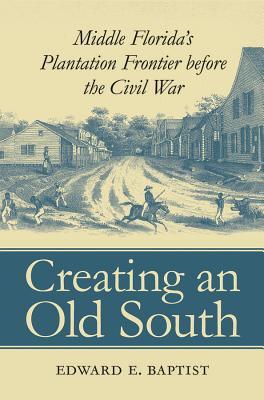

 |

|

The average rating for Creating an Old South based on 2 reviews is 2 stars.
Review # 1 was written on 2019-08-30 00:00:00 Steven Lucas Steven LucasFirst, let's admit that there is no such thing as purely objective observation. Thoreau understood that he was a player in the processes of natural discovery. Pure objectivity plays second fiddle to subjective involvement. We, mankind, are part of everything. Laura says, "Phenomena are as [Thoreau] puts it, not independent of us but related to us, and that our knowledge can exist only in that shifting field between ourselves and our 'objects.' What Thoreau was arguing against was the 'ideology' of representation...which objectifies the world as thing, then asserts that what is out there can be correctly, i.e. objectively seen." (p.206) Of course there is much more to the ideas of empirical holism and Laura does a good job of explaining them and Thoreau's interpretations and understanding of Humboldtian science. We are involved, aren't we in the processes of nature? Can't we see that objective distance is impossible? When I finished the book I took my leaf blower and cleared off the driveway and wondered how many processes I had affected in doing so. I was a player, wasn't I? |
Review # 2 was written on 2016-12-04 00:00:00 Ardon Manuel Ardon ManuelLaura Dassow Walls ΦBK, University of Washington, 1976 Author From the publisher: Thoreau was a poet, a naturalist, a major American writer. Was he also a scientist? He was, Laura Dassow Walls suggests. Her book, the first to consider Thoreau as a serious and committed scientist, will change the way we understand his accomplishment and the place of science in American culture. Walls reveals that the scientific texts of Thoreau’s day deeply influenced his best work, from Walden to the Journal to the late natural history essays. Here we see how, just when literature and science were splitting into the “two cultures” we know now, Thoreau attempted to heal the growing rift. Walls shows how his commitment to Alexander von Humboldt’s scientific approach resulted in not only his “marriage” of poetry and science but also his distinctively patterned nature studies. In the first critical study of his “The Dispersion of Seeds” since its publication in 1993, she exposes evidence that Thoreau was using Darwinian modes of reasoning years before the appearance of Origin of Species. This book offers a powerful argument against the critical tradition that opposes a dry, mechanistic science to a warm, “organic” Romanticism. Instead, Thoreau’s experience reveals the complex interaction between Romanticism and the dynamic, law-seeking science of its day. Drawing on recent work in the theory and philosophy of science as well as literary history and theory, Seeing New Worlds bridges today’s “two cultures” in hopes of stimulating a fuller consideration of representations of nature. |
CAN'T FIND WHAT YOU'RE LOOKING FOR? CLICK HERE!!!